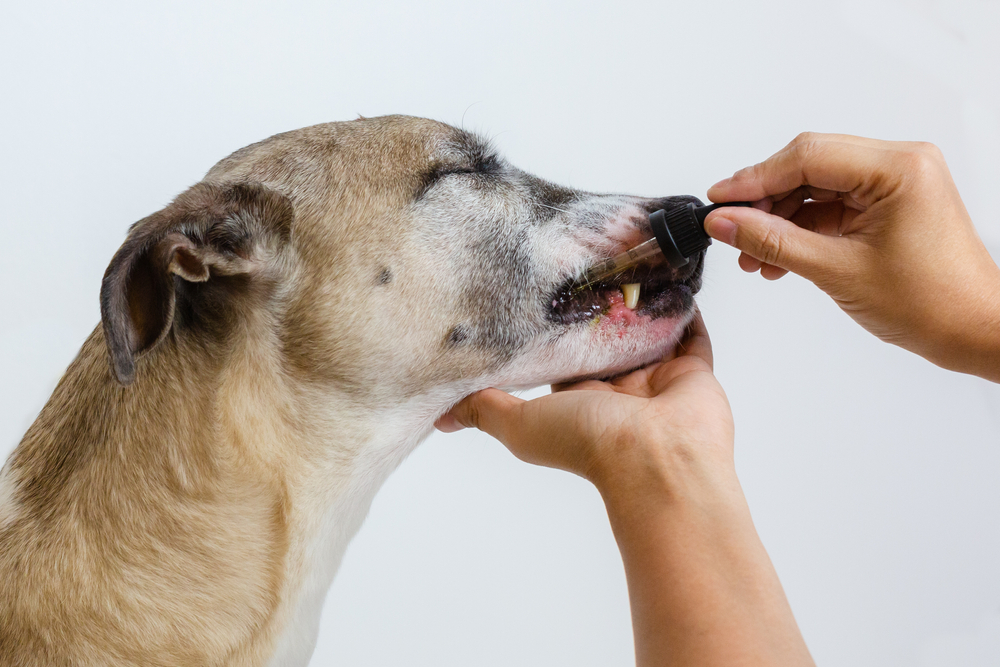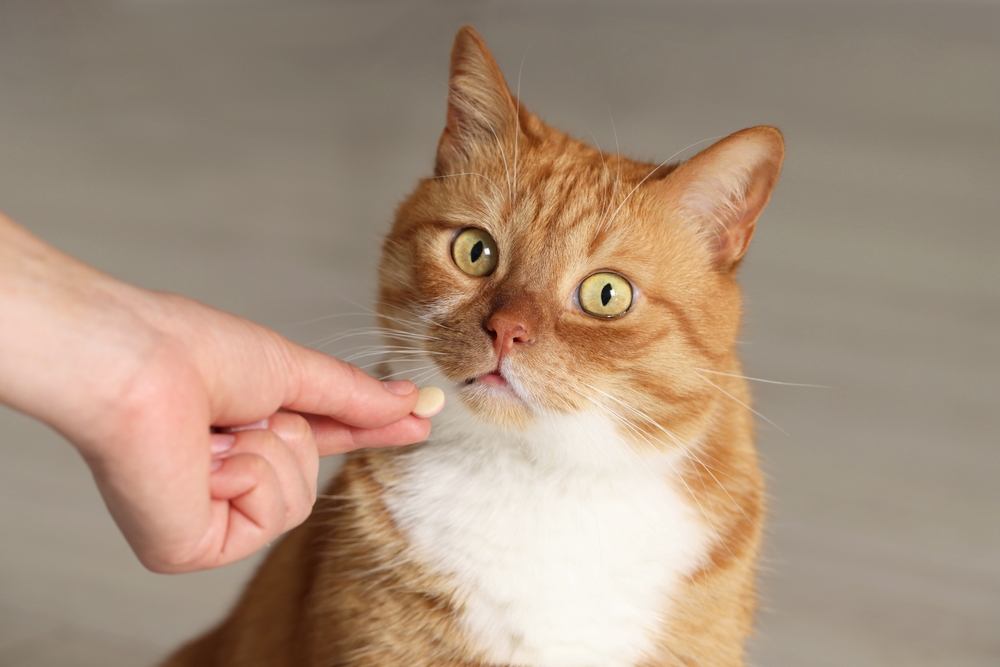Is your pet an escape artist who disappears when they see you getting their medications? Whether a pill, liquid, or topical treatment, convincing your furry friend to cooperate and take their medicine is often an uphill battle, but you can do it with the right approach and some helpful tools. Our Southern Kern Veterinary Clinic team provides you with tips and techniques to administer pet meds like a pro.
First, talk to our veterinarian
Before you em-bark on medicating your pet, discuss medication options with our veterinarians. Most pets find pills or capsules difficult to swallow and will spit them out when you’re not looking, or refuse to take them at all. However, pet medications come in different forms, including topicals or liquids, and if you’ve exhausted your efforts with pills, we can devise other solutions and ensure your pet is getting the medication they need.
Use positive reinforcement
The positive reinforcement technique teaches pets to associate tasks with rewards. For example, if you are training your pet to walk on a leash, carry several treats and reward them each time they walk happily and do not budge. You can also use this principle to give your pet their meds. Praise them, show affection, and offer treats each time they swallow their medication to teach them that medication-taking is pleasurable rather than anxiety-inducing.
Pro tips for administering pet meds
Once you’ve spoken to our vet and know about positive associations, it’s time to try our method. Follow these tips:
- Find a quiet spot — Take your pet to a quiet area of your home where you will not be distracted. You may need to sit beside your pet on a bed or couch and restrain them gently.
- Disguise the medication in food — If your pet is wary when they see the medication, try disguising the pill in their favorite treat or food. You can conceal pills effectively in peanut butter—ensure you feed them a xylitol-free product—cheese, lunch meat, or wet pet food, or mix liquid medications in their food or water. Ensure you first carefully read the instructions, as some medicines cannot be taken with food.
- Use pill pockets — Pill pockets are specially designed soft treats that come in various flavors and have a hollow center for hiding pills. They are an excellent option for pets adept at spitting out medication hidden in regular treats.
- Reward, praise, reward — Remember the follow-up reward—praise, playtime together, or their favorite treat—which is key to ensuring your pet changes their thinking and reinforces their positive behavior. When they see taking their medicine as a good thing, future sessions will be easier for you both.
These recommendations also will help:

- Stay calm and patient — If you are nervous when giving your pet their meds, they will pick up on your stress or anxiety and the process will be more challenging. Stay calm, speak soothingly to your pet, and approach them patiently and gently.
- Establish a medication routine — Pets thrive on a set routine, including medication time. Establish a regular schedule, preferably at the same time each day (e.g., right before dinner), for medicating your pet. Your pet will likely cooperate when medication time is predictable and a normal part of their day.
- Ensure the dosage is correct — Your pet needs the correct dosage for their medication to be effective, and this can require some precision. Ask our veterinary team for advice on using special tools, such as syringes, droppers, and pill splitters, to ensure your pet receives the accurate amount of medicine. Too much or too little medication can adversely affect your pet’s health.
- Monitor for side effects — Once your pet is successfully medicated, watch them closely for any adverse reactions or side effects. If you notice any unusual changes in their health or behavior, contact our veterinarian immediately.
Medicating your pet doesn’t have to be a struggle. Use our suggestions and you will likely find that you can make medication administration, perhaps not a pleasure, but at a minimum, less stressful.
Remember—patience, consistency, and positive reinforcement are essential for successful medication administration, and medicating successfully is essential for your pet’s health. Contact our Southern Kern Veterinary Clinic team any time if you have questions about your pet’s medications or need help getting them to take their medicine.

